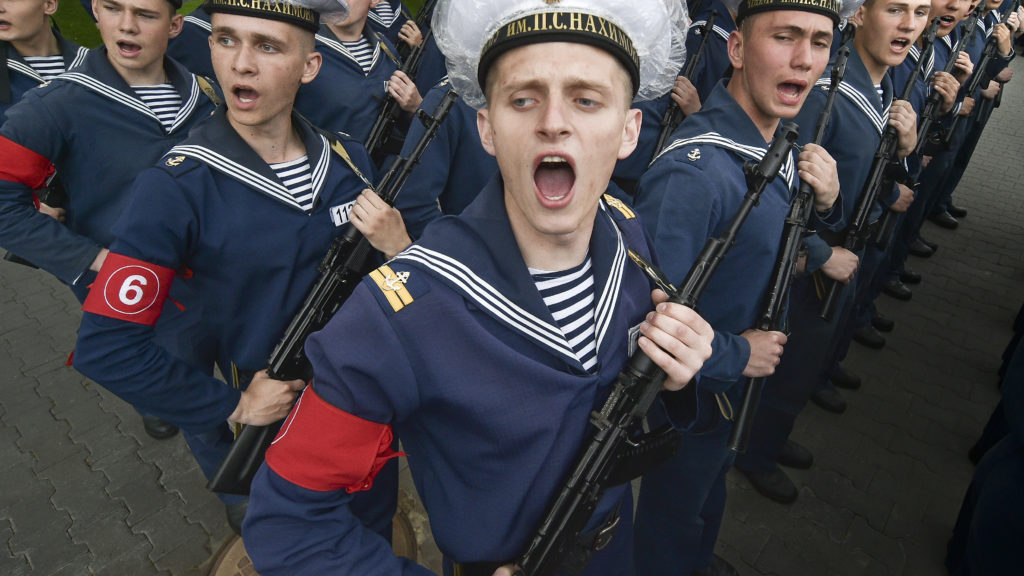Russians celebrate Victory Day on Monday, May 9.
This year’s Victory Day comes amid widespread speculation, in both Russia and the West, that Putin is eager to declare at least a symbolic win in Ukraine.
The Kremlin insists that what it calls its “special military operation” in Ukraine is going “according to plan.” Two months in, Western security officials say Moscow has struggled to reach its objectives.
Clues to the Kremlin’s search for the optics of victory may lie in a visit last week by a senior official, Sergei Kiriyenko, to the besieged Ukrainian city of Mariupol.
In front of cameras, Kiriyenko, Putin’s deputy chief of staff, unveiled a statue depicting an elderly Ukrainian woman whom Russian state media have turned into a symbol of Ukrainian support for Russian troops.
Putin recognized the independence of Ukraine’s separatist regions of Donetsk and Luhansk in the hours before Russia’s decision to send troops into Ukraine in February.
Each May 9, Russians celebrate the end, in 1945, of what they call the Great Patriotic War, in which more than 20 million Soviet citizens died at home and abroad.
It appears Moscow’s military display on Monday may be scaled down from those in previous years to reflect the fight in Ukraine, based on statements from Russian Defense Minister Sergei Shoigu.
Tomorrow, Russia celebrates Victory Day, an annual event to mark the Soviet Union’s victory over Nazi Germany in World War II.
But of course, this year’s event comes as Russia is carrying out what it calls a special military operation against what the Kremlin insists are Nazis in present-day Ukraine.
The problem – there aren’t that many to point to after two months of fighting, even as the Kremlin insists its operation is going according to plan.
And, you know, in their actions and in their words, they draw this direct line between the Soviet victory over fascism in 1945 and their forces operating in Mariupol and other parts of east Ukraine today.
He refused to give his last name to me because I’m a Western reporter, but I met him on Red Square as we watched some of the rehearsals for tomorrow’s parade.
ANDREI NIKOLAEVICH: We have already had once, this victory in 1945.
You know, having sold the Russian public on this narrative of fighting a new wave of fascism in Europe, the leadership here is risking that anything short of total victory might look like failure.
